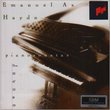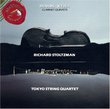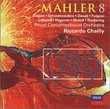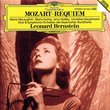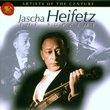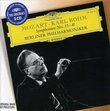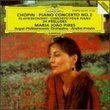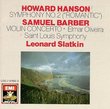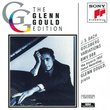| All Artists: David Oistrakh, Mstislav Rostropovich, Sviatoslav Richter, Herbert von Karajan, George Szell Title: Great Recordings Of The Century - Beethoven: Triple Concerto; Brahms: Double Concerto / Oistrakh, Rostropovich, Richter Members Wishing: 0 Total Copies: 1 Label: EMI Classics Original Release Date: 1/1/1969 Re-Release Date: 3/9/1999 Album Type: Original recording reissued, Original recording remastered Genre: Classical Styles: Forms & Genres, Concertos, Historical Periods, Classical (c.1770-1830), Modern, 20th, & 21st Century, Instruments, Strings, Symphonies Number of Discs: 1 SwapaCD Credits: 1 UPCs: 724356695429, 724356695450 |
Search - David Oistrakh, Mstislav Rostropovich, Sviatoslav Richter :: Great Recordings Of The Century - Beethoven: Triple Concerto; Brahms: Double Concerto / Oistrakh, Rostropovich, Richter
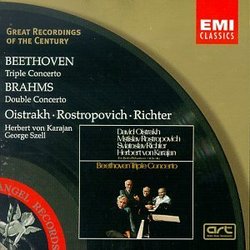 | David Oistrakh, Mstislav Rostropovich, Sviatoslav Richter Great Recordings Of The Century - Beethoven: Triple Concerto; Brahms: Double Concerto / Oistrakh, Rostropovich, Richter Genre: Classical
Among the concertos of Beethoven and Brahms, these two have always been stepchildren. One reason is their extreme difficulty; both composers were pianists, so Beethoven wrote an idiomatic part only for the piano. Brahms's ... more » ![header=[] body=[This CD is available to be requested as disc only.]](/images/attributes/disc.png?v=a4e11020) ![header=[] body=[This CD is available to be requested with the disc and back insert.]](/images/attributes/disc_back.png?v=a4e11020) ![header=[] body=[This CD is available to be requested with the disc and front insert.]](/images/attributes/disc_front.png?v=a4e11020) ![header=[] body=[This CD is available to be requested with the disc, front and back inserts.]](/images/attributes/disc_front_back.png?v=a4e11020) |
Larger Image |
CD DetailsSynopsis
Amazon.com Among the concertos of Beethoven and Brahms, these two have always been stepchildren. One reason is their extreme difficulty; both composers were pianists, so Beethoven wrote an idiomatic part only for the piano. Brahms's friend Joseph Joachim offered advice for the violin concerto, but not for the Double Concerto, which was written as a peace offering after a falling-out. The Beethoven Triple Concerto demands utmost virtuosity, as well as intimate teamwork among the soloists, and that is exactly what these three supreme masters of their instruments bring to it. Free--indeed unaware--of technical problems, they give it a joyful, sparkling lightness. The piano ripples, the cello sings gorgeously, the violin soars ecstatically, the tone is intoxicatingly beautiful. The Finale is wistful, charming, lyrical, gently humorous; the ending is a big joke, with the cello and piano rumbling in the bass, while the violin whistles forlornly in the dark until they all join together. The Brahms is grand, majestic, dreamy, radiant, triumphant; the slow movement warm as dark velvet, the Finale genial and relaxed. Though the orchestra never covers the soloists, it explodes in the tutti passages, especially in the Beethoven, so you might keep a finger on the volume control. --Edith Eisler Similarly Requested CDs
|
CD ReviewsExcellent versions of two famous concertos. Mike Powers | Woolwich, ME USA | 05/09/2000 (5 out of 5 stars) "A wonderful version of Beethoven's Triple Concerto and Brahms' Double Concerto. These pieces are a superb coupling on one CD. David Oistrakh (violin), Mstislav Rostropovich (cello) and Sviatoslav Richter (piano) make a dynamic team with Herbert von Karajan and the Berlin Philharmonic Orchestra for the Triple Concerto. All of Beethoven's passion and power shine through admirably. Again, Oistrakh and Rostropovich are in top form playing Brahms' Double Concerto, this time with George Szell and the Cleveland Orchestra. One minor problem is the CD's engineering, which lets the players down just a little bit. "Forte" passages seem too loud, and as a result lose some of their definition. This is less of a problem in the Brahms Double Concerto. Despite this minor shortcoming, this is definitely the best recording to own of both Beethoven's Triple Concerto and Brahms' Double Concerto." Perfect Brahms, almost perfect Beethoven Brian H. Williams | Manteca, CA United States | 08/09/2001 (4 out of 5 stars) "To have three of the greatest soloists of our time together in one recording is pure ecstasy. The Brahms concerto couldn't have been played finer, precise with the sweet tone of Oistakh, deep passionate playing of Rostropovich, and the outstanding conducting of Szell. There are several great recordings of the Double, like Heifetz & Piatagorsky with Sargeant, but that version is lacking the deep felt emotions felt by Oistrakh and company. The Beethoven triple, however, is not up to the same level as the Brahms. This is due largy to Herbert Von Karajan. He just doens't have what it takes to be a sympathetic accompanist. As usual, HvK has smoothened out the lines imposing that Karajan sound on the Berlin Phil. As it is well known, Richter and HvK couldn't stand each other (listen to their recording of Tchaikovsky's Piano Concerto available on DG, Richter is great, it is still a satifying recording due to the simple fact that three of the greatest soloists of our time are performing in this one recording. Reccomended!!!" Grand and glorious Alejandra Vernon | Long Beach, California | 02/01/2005 (5 out of 5 stars) "Historic for having three of the greatest musicians who ever walked the earth on one disc, these are also fabulous concertos, at once strong and graceful, melodic as well as grand, and beautifully played by these extraordinary masters.
David Oistrakh (1908-1974) has always been my favorite violinist, Sviatoslav Richter (1915-1997) one of the finest pianists of the 20th century, and Mstislav Rostropovich is almost a father figure in Russian music, whether as a superb cellist or conductor. They share a similar heritage, having all lived in the Soviet Union (Oistrakh and Richter were born in the Ukraine, Rostropovich in Azerbaijan in 1927) during relatively the same time frame. The Beethoven Triple Concerto was started in 1803, and it is fascinating to read in the liner notes how many compositions Beethoven had going at the same time, and major works, like the Eroica Symphony, the Waldstein Sonata, and Fidelio, and during this time managed to weave this marvelous (and unusual for its combination of instruments) piece into his composition schedule. As much as I love the Beethoven concerto, the Brahms "Double" is the winner for me...it gets me in its opening bars of a strong motif, the passionate "conversation" between cello and violin, to come back forcefully to the motif, and it never lets up that intensity for its duration. Oistrakh and Rostropovich have never been finer in what is a definitive performance of this concerto. The Beethoven, conducted by Herbert Von Karajan with the Berlin Philharmonic, and the Brahms, with George Szell and the Cleveland Orchestra, were both recorded in 1969, and the sound has been well re-mastered and is very good for its age. Total playing time is 69'54. " |

 Track Listings (6) - Disc #1
Track Listings (6) - Disc #1